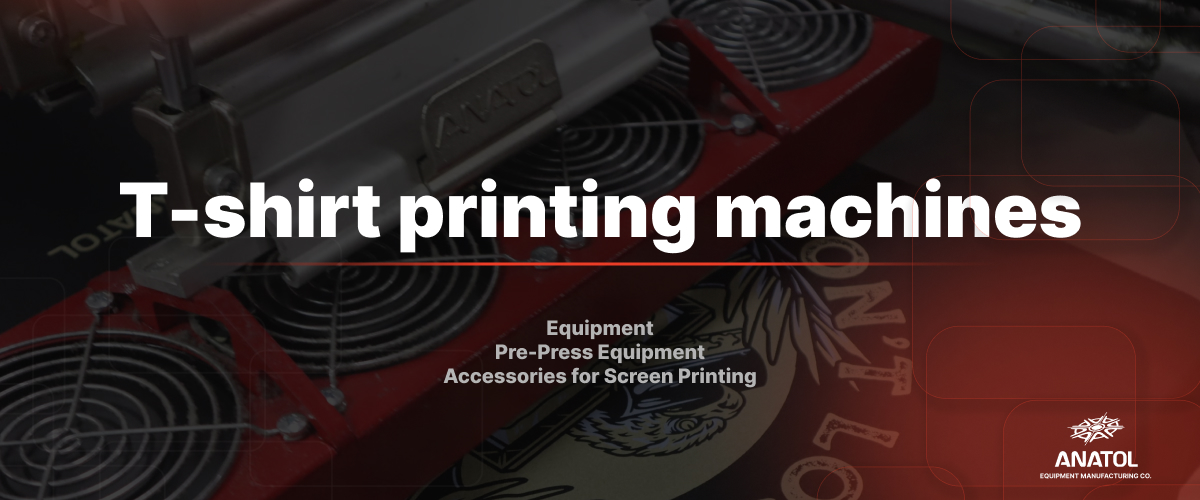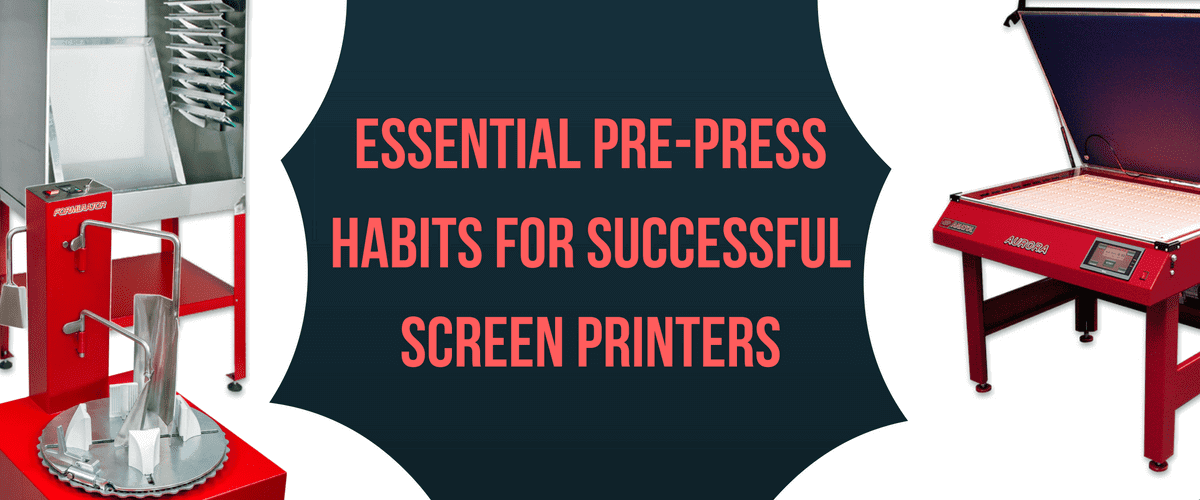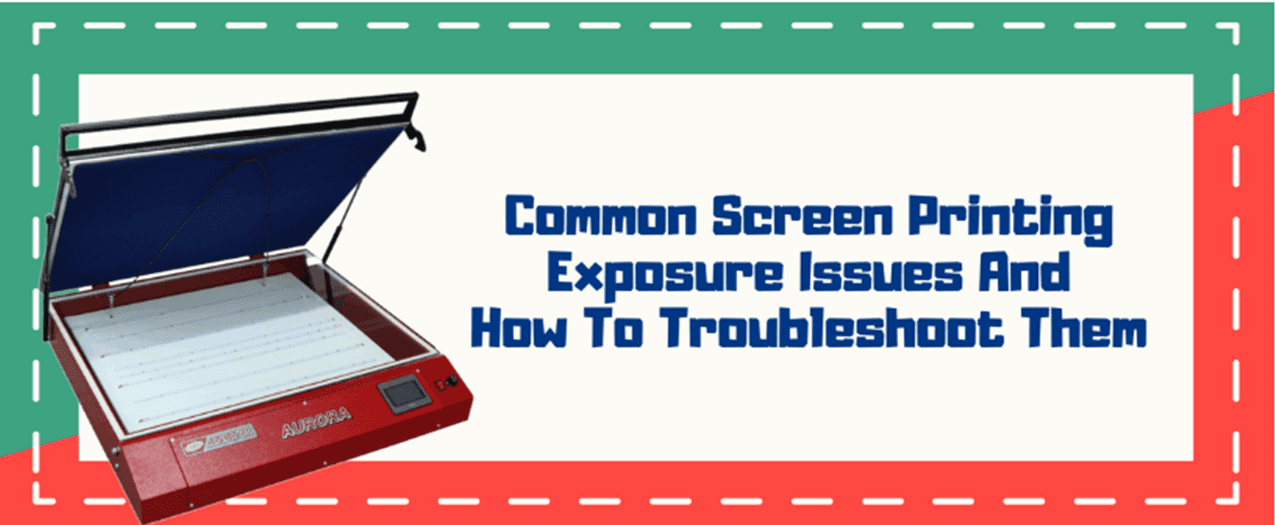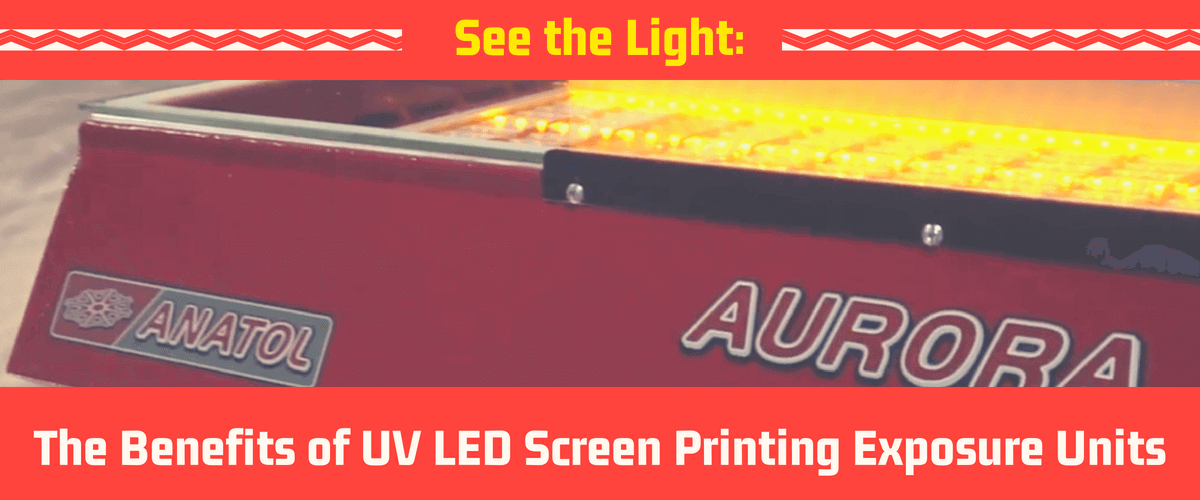

Revolutionizing the screen printing industry through cutting-edge technology and quality service
Anatol Equipment Manufacturing Co.
1429 S Shields Dr
Waukegan, IL 60085


Revolutionizing the screen printing industry through cutting-edge technology and quality service
Anatol Equipment Manufacturing Co.
1429 S Shields Dr
Waukegan, IL 60085

A colorful graphic t-shirt with an original, eye-catching design is a staple of most people’s wardrobe. A unique print applied to clothing allows you to stand out from the crowd and show you individuality. This is why the business of producing printed clothing is a multi-billion dollar industry. There are many different ways you can […]
Read more
Every screen printer wants to create durable stencils that don’t degrade over the course of a print run. Stencils that soften or break down during long press runs or when used with water-based inks can slow production and lead to misprints and waste. To combat this, many screen printers turn to post-exposure. That is, exposing […]
Read more
So much of your focus as a screen printer goes into perfect printing operations: Using the right off-contact, squeegee angle and pressure, and curing at the right temperature for the right amount of time. But when it comes to setting yourself up for the perfect press run, much of your success hinges on your screen printing pre-press operations.
Read more
The best screen printing results always begin with well-executed pre-press. It’s easy to think of your screen printing press as the backbone of your operation. But remember, a press can only deliver quality prints if it’s printing through quality screens. Your screens deserve as much attention as any other part of your setup, because no […]
Read more
Exposure issues can create a lot of headaches in your screen printing shop, but fortunately there are some easy steps you can take to prevent them! Are your screens giving you problems? You know how important a great stencil is in creating a great screen print. For that reason, exposure problems can cause some of […]
Read more
Find out how UV LED exposure units can speed up your production and increase your efficiency! The popularity of UV LED exposure units has increased rapidly since they were introduced to the screen printing market only a few years ago. If you haven’t upgraded to a UV LED exposure unit in your screen printing shop, […]
Read more
There are a lot of variables that go into exposing a screen for screen printing. The opacity of your film positive, your emulsion, the type of exposure unit you’re using and even the age of your exposure unit all will affect the amount of time you need to expose your screens and the success of your stencil.
Read more
Running a screen printing business means making big purchasing decisions. In addition to choosing a press, a dryer and perhaps a flash cure unit, you’ll need to choose a screen exposure unit.
Read more
With so much attention on applying ink to shirts, it’s easy to forget that pre-press is just as important! If your screen hasn’t been properly prepared before it goes on the press, even perfect printing technique won’t deliver a quality print. There are so many variables that factor into exposing your screens it can be difficult to get a good result, especially if you’re unfamiliar with the process.
Read moreYour message was successfully sent!